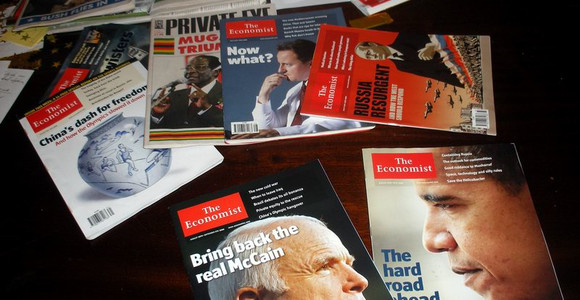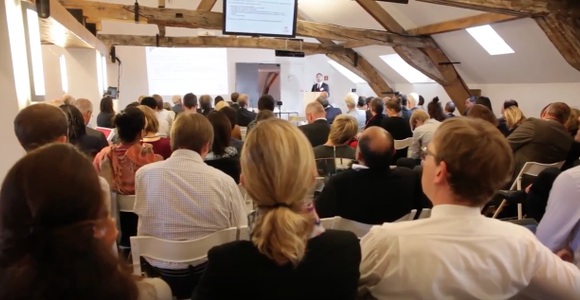Stefan Stern, director of High Pay Centre in Financial Times: “Too many see becoming the boss as ‘a prize, not a responsibility “
(...) A conference last week in Brussels sought to underline this point. It was the culmination of a two-year programme of seminars and roundtables called “Purpose of the Corporation”. The project was coordinated by Frank Bold, the law firm. The thoughts and contributions culled from more than 260 of its participants have been written up in a final report. A key proposal is that businesses should “embed a clear statement of purpose and corresponding rights and responsibilities of directors, shareholders and other stakeholders in governance documents and articles of incorporation”.
This is clearly a broader concept of the purpose of a public company than that embodied in the phrase “maximising shareholder value”. Yet this narrower view is still the prevailing conventional wisdom in many parts of the world. Grown-up businesspeople will look you in the eye and declare, in all seriousness, that “fiduciary duty” is essentially a question of the share price and dividends.
This is an inadequate and damaging view. But as the report points out, the attempt by both boards and shareholders to adopt a broader concept of fiduciary duty “is undermined by the prevailing corporate governance model”.
Full article: https://www.ft.com/content/d0725b64-870b-11e6-a75a-0c4dce033ade
Elena K. Johansson in Responsible Investor: “Conference report: ‘Creating Sustainable Companies’ summit: shareholder primacy needs overhauling”
How can we create a more balanced, long-term, inclusive view of corporate governance. Confronted with rising inequality and advancing climate change – both systemic risks – today’s corporate governance model lacks a social and environmental ‘license to operate’ because it does not challenge the dominant short-term, narrow, shareholder-value focus. This was the broad conclusion of speakers brought together by Frank Bold, the public interest law firm, at a summit in Brussels on September 28 to debate the subject of “creating sustainable companies”.
The panelists agreed that post financial crisis it has become clear that the current model chases short-term profit to satisfy shareholders’ myopic views on value creation, rather than the notion of broader ‘stakeholder’ and societal interest. The summit was tied to the release of a report titled ‘Corporate governance for a changing world’, with feed-in from 260 leaders in business management, investment, regulation, academic and civil society communities around the world. The report also concludes that the excessive drive for profit and shareholder value maximization means companies have lost longer-term ‘purpose’ and value.
(...)
The company’s purpose is, according to the roundtable participants of the report, broader and based on being “successful over a long-term period”, in order to satisfy broader stakeholder interests (employees, shareholders, customers, suppliers, society). It says a power shift is required away from shareholder primacy to a more balanced model of interests by integrating long-term goals in corporate strategy and contributing to societal well-being and environmental sustainability, and thereby improving corporate resilience against risks. A range of measures, such as reducing excessive executive pay, clarifying fiduciary duty, and educating board members to cure businesses from chronic short-termism were named in the report and at the summit.
Full article: https://www.responsible-investor.com/home/article/e_csc/
Paige Morrow, Head of Brussels Operations at Frank Bold in the IIRC website: “Six ideas for improving reporting – and by extension, corporate governance”
(...) From the 1970s onwards, mainstream corporate governance models have narrowed until the purpose of the corporation has become equated for many with the maximisation of shareholder value. The narrowing in perception of the legitimate scope of corporate purpose and managerial discretion has prompted boards and executives to adopt short-term strategies – and for investors to focus on short-term financial performance.
Our ‘Corporate Governance for a Changing World’ report tackles the question of how to improve corporate reporting and outlines key principles for creating long-term sustainable value. Below you can take a glance at some of the recommendations: (...)
Full article: http://integratedreporting.org/news/six-ideas-for-improving-reporting-and-by-extension-corporate-governance/
ActionAid article “ A new approach to corporate governance: Does this mean ending capitalism?
We need a new approach to corporate governance. Companies cannot just be a vehicle to create shareholders’ value – i.e. to pay high returns to those holding the capital. They must be accountable to society, local communities must be better off as the result of their intervention. Companies must serve the surroundings in which they are operating, not the opposite – people and environment being exploited to increase companies’ profits.
That was the common thread of an enthralling event organised a few days ago in Brussels by Frank Bold law firm. This is also at the core of the recently released annual report of UNCTAD: Shareholders’ primacy over environmental and social considerations and short termism in corporate governance is forcing the world onto a disastrous path. If this does not change, the coming years will witness more inequality, conflicts, sky-rocketing unemployment and more natural disasters, and of course larger numbers of people forced to leave their country.
But how to create a conducive environment for a new approach to corporate governance? This is what was discussed in the event, which brought together company representatives, NGOs, academics and EU officials. (...)
Full article: http://www.actionaid.org/2016/10/new-approach-corporate-governance-does-mean-ending-capitalism
Paige Morrow, Head of Brussels Operations at Frank Bold in Triple Pundit: “5 Steps for Stronger Companies”
After the financial crisis, we’ve seen considerable debate about the role of corporations in society. It has become broadly accepted that corporations — particularly the world’s largest publicly-traded corporations – need to be governed with respect for society and the environment. What is the role of companies in addressing the challenges of the 21st century? And how can their governance contribute to the greater good?
Listed below are a few key principles for creating long-term sustainable value and building resilience in big, publicly-traded companies, as well as some actions that businesses can take to move in the right direction.
1. Define the purpose of the corporation (...)
2. Improve executive pay and employee incentives (...)
3. Integrate stakeholder voice into decision-making (...)
4. Clarify the obligations of company directors (...)
5. Improve corporate reporting (...)
Full article: http://www.triplepundit.com/2016/10/5-steps-stronger-companies/
Bizolutioners “Imagine there’s a world where we truly care for companies longevity”
But does monster-fying the corporation really help us solving the human rights issues caused by companies? Without wishing to delve into decades of unsuccessful campaigning against specific companies within capitalist societies, I reject monster-fying as a strategy to create change as much as I reject smart-ifying companies. Smart-ifying is my expression for all those instances in which a company is assumed to have exclusive problem-solving capacity. (...) In between monster-fying and smart-ifying, there lies the wide and grey area where we can choose to look at reality in all its contradictions. Once we have established what the corporation actually is and what its purpose is supposed to be, we can engage our imagination with that reality to create feasible steps towards human rights respect in business.
Pursuing the Purpose of the Corporation. The question ‘what is the corporation?’ has been pursued by Frank Bold for the last two years. Usually, this law firm and civil society organisation presents itself as a provider of “legal expertise in corporate accountability and corporate governance to the European institutions as well as to civil society, municipalities, and businesses.” Together with the Modern Corporation project at Cass Business School, Frank Bold initiated the Purpose of the Corporation Project. In the framework of this project, they realised the ‘Corporate Governance for a Changing World Roundtable Series’ in six European cities and New York. (...)
Full article: https://bizolutioners.wordpress.com/2016/10/25/imaginetheres-a-world-where-we-truly-care-for-companies-longevity/
Andrew Johnston and Tiina Ruohonen in the University of Oslo website “Reporting Back: A Need for Collective Endeavour”
Good news for the planet: Recent summit suggests growing consensus on the need for integrating sustainability considerations into finance and corporate governance.
(...)
The report clearly recognizes that sustainability challenges cannot be met within the current economic, financial and corporate governance paradigms. The report contains a number of recommendations drawn from the global roundtables which will potentially serve as a useful starting point for research carried out within the framework of the SMART project, including far-reaching proposals on stakeholder engagement and incentives for long-term shareholders.
Full article: http://www.jus.uio.no/ifp/english/research/projects/smart/news/reporting-back%3A-a-need-for-collective-endeavour.html
Governance Institute of Australia
After the global financial crisis, there has been considerable debate about the role of corporations in society. It has become broadly accepted that corporations — particularly the world’s largest publicly traded corporations — should be governed with respect for the society and the environment. This is because corporations are dependent on the broader institutional and systemic framework within which they operate for their long-term survival. In addition, the most pressing of society’s problems cannot be solved by regulation alone without contributions from corporations, such as the attainment of the UN Sustainable Development Goals.
(...)
Eminent economist, John Kay, has noted that: ‘Short-termism, or myopic behaviour, is the natural human tendency to make decisions in search of immediate gratification at the expense of future returns, decisions which we subsequently regret’.
With this context in mind, European law firm Frank Bold and Cass Business School held a number of global roundtables to consider these issues. The results of those discussions have been synthesised in a report, Corporate Governance for a Changing World.
Full article: https://www.governanceinstitute.com.au/news-media/news/2016/oct/what-is-the-purpose-of-the-corporation/
Jeroen Veldman and Paige Morrow in the Columbia Law School's blog on Corporations and the Capital Markets
(...) The breadth of corporate purpose determines a corporation’s ability to recognise, respect, and balance stakeholder needs, which are key to its long-term success, ability to operate in line with societal interests, and maintenance of public trust and its social license to operate.
The roundtables identified how company law worldwide permits a broad perspective on the purpose of the corporation and mandates the direction of fiduciary duties toward the corporation, not the shareholders. (...)
Full article: http://clsbluesky.law.columbia.edu/2016/11/09/corporate-governance-for-a-changing-world-report-of-a-global-roundtable-series/
Oleg Komlik in Economic Sociology and Political Economy Community
Our societies are all scarred by Milton Friedman’s creed that “the social responsibility of business is to increase its profits”; our economies are all wounded by corporations’ obsessive pursuit for short-term profit maximization; regrettably, we all pay the price of dodgy and excessive corporate risk taking at the expense of long-term reasonable wealth creation and distribution. (...)
Full article: https://economicsociology.org/2016/11/26/corporate-governance-for-the-society-and-the-environment/
The 'Corporate Governance for a Changing World: Report of a Global Roundtable Series' also appeared in Politico’s newsletter “Brussels Playbook” as one of the most read publications in the online platform thewonk.eu. Lastly, the hashtag of the Creating Sustainable Companies Summit #FutureSustBiz was in the top 10 trending topics in Twitter Belgium on September 28! Check our storify here.
*More media articles featuring the Purpose of the Corporation Project or published by our team members can be found here.







